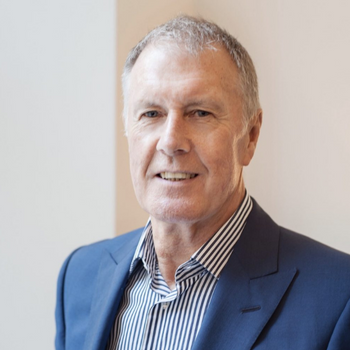Sir Geoff Hurst MBE secured a unique place in the history of football in 1966 when he became the first and, for more than 56 years, the only player to score a hat-trick in a World Cup Final; but there is more to Sir Geoff than football alone as he happily explains to corporate audiences worldwide
Knighted in 1998 and inducted into the English Football Hall of Fame in 2004, Sir Geoff holds a special place in the hearts of football fans across the world and, perhaps surprisingly, this includes Germany!
Sir Geoff divided his sporting interests between football and cricket, excelling in both areas before concentrating on football, joining West Ham United after leaving school.
Initially a strong-running midfielder, the manager, Ron Greenwood, spotted Geoff's talent as a striker and moved him to centre forward, the position he was to play for his entire football career.
Early in 1966, Alf Ramsey, the England manager, named Geoff in the England line-up and included him in the squad that was to compete for the World Cup at Wembley in July of that year. The 30th July was to be a pivotal moment in Geoff's career, and his life, when he famously became the first man to score a hat trick in a World Cup Final. His place in the history of football was assured.
When his football career ended Sir Geoff pursued a second successful 20 year career in insurance before finally retiring in 2002. He described the change in his best selling autobiography "1966 And All That"
"Suddenly, I was no longer a well-known footballer and World Cup hero. I was another man in the street struggling to pay the mortgage. In the space of a fortnight my life turned around completely. The induction course taught me how to approach people. Until this time, everyone had approached me - for autographs, for charity events, for photographs, for interviews, for TV and personal appearances. Now I had to learn how to approach strangers."
Today, Sir Geoff is asked about the World Cup on a daily basis but there was a gap of 15-20 years between his football career and the reverence for the achievements of the England team that has grown in more recent years. Would Sir Geoff have chosen to stay in football if he had the chance?
"It wasn't an option at the time. I had bills to pay and a family to look after. In the long term, it proved to be a good decision. I enjoyed my second career and having to go from the top, to the bottom and work my way back up again taught me something about humility - not a bad lesson for some of the egotistical young players in the modern game."
Who would disagree with that?

